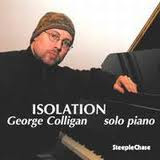 |
| Narrator and potential ass-whupper Keith David |
If you see this 10 part documentary for what it is, and not for what it isn't, then it's a wonderful teaching tool. The demonstration of how this distinctly American music was created is very clear and compelling: the new world and it's extreme culture clashes slowly developed a completely unique musical language. Sure, you could read Gunther Schuller's scholarly tome Early Jazz and read what comes off like a doctoral thesis and bore your class to tears. (Sorry Gunther; with all due respect to your vast knowledge, the explanations of how African traditions infiltrated European sensibilities is completely thorough- it's just not sexy!)But in Chapter 1 of Burns' film, you have a real picture of the era; the brave new world and it's rugged lifestyles, the horror of slavery, the ironic controversy of minstrel shows, the intensity of New Orleans during Reconstruction. For young students who may have no idea what jazz is about beyond one Brad Mehldau CD and a copy of the Real Book, it should be inspiring. And it should hopefully inspire students to look for more information themselves. After all, no historical perspective should be viewed as the absolute truth.
I believe that is where the controversy lies in this film. Although other experts are given a chance to speak in the film, we definitely see way too much of Wynton Marsalis. Now I will gladly give Marsalis his props as a trumpet virtuoso. But is he the best authority on jazz history that Ken Burn's could find?
 |
| too much Wynton? |
Admittedly, I had not watched this chapter until now. (I spent more time with the previous nine episodes because, despite the bias, they are great for the classroom, especially for today's youth, who tend to think of Duke Ellington as some vague royal European.) Episode 10 begins with Dexter Gordon, goes into the rise of the Beatles and some commentary by late vocalist Abbey Lincoln regarding the idea that "somebody" was trying to get rid of jazz by bring over British rock musicians. There is a short bit about how Louis Armstrong, although not enthusiastically, recorded "Hello Dolly" which became a hit; Armstrong had no idea about the success of the recording and had to send for the sheet music during a tour. Then, they play some of the Max Roach/ Abbey Lincoln piece We Insist! Freedom Now, which leads to talk of the Civil Rights movement of the 1960's. Charles Mingus' political music is discussed. Some of the music during this period is described by the narrator as "musical militancy." The Art Ensemble of Chicago and Cecil Taylor are presented well. Even Joao Gilberto, Stan Getz and Bossa Nova are given air time.This is all, so far, great, true, and relevant, and on the surface should not be controversial.
But then we jump back to Duke Ellington, who, great as he is, has already gotten a lot of space in this mini-series length film. And we also see Marsalis again, who is conspicuously absent from any commentary on all of the musicians in my previous chapter. We get to see some good footage of John Coltrane, although I find Gary Giddins' comments, as well as Marsalis', to be superfluous(although earlier in the documentary, Giddins comes off as knowledgeable.) More great footage appears regarding Miles Davis' 60's quintet. I have no real complaints so far, and can't see why anyone else would.
Then there is some incredible footage of the 1969 Newport Jazz Festival where Sly and the Family Stone rock the house; according to George Wein, this had a huge impact on Miles Davis, which led him into the jazz-rock and fusion which Marsalis' clearly has a disdain for. Again, for a classroom, it's still good viewing, because it does present the history, however, Marsalis can't hide his disgust.(They should have left his little snide comments out, in my opinion.) And then we cut back to Louis Armstrong and then back to Ellington. OK, there's isn't much time left in the show, you have three more decades to cover, why are we cutting back to them? Maybe Burns is trying to tie it all together, however, it does seem like, according to this documentary, that jazz died with Armstrong and Ellington. Here's where it starts to get preachy. Marsalis gets on his soapbox and starts talking about the music "will become itself..." or something. Burns and Marsalis, you kind of lost me here.
 |
| Leaving out Woody Shaw equals FAIL! |
Apparently, Burns admitted that he didn't know much about Jazz until he did this documentary. While the first nine episodes are great for their own sake, the last episode shows how ignorant and easily manipulated Burns is about the music. I think Burns should have made a shorter documentary and just called it Armstrong and Ellington:America's Originals. (But no one ever listens to me! Burns, why didn't you return my calls?)And I think the worst thing about it is that this glaring omission, by something that claims to be all encompassing, does it in a very sneaky way. You don't realize it until the last half-hour:"Hey, where's Return to Forever? Where's Sphere? Where is OTB? Where is George Duke? Where is John Zorn? No M-Base?"
 |
| Bowl Hair Cuts: A Film By Ken Burns |




































